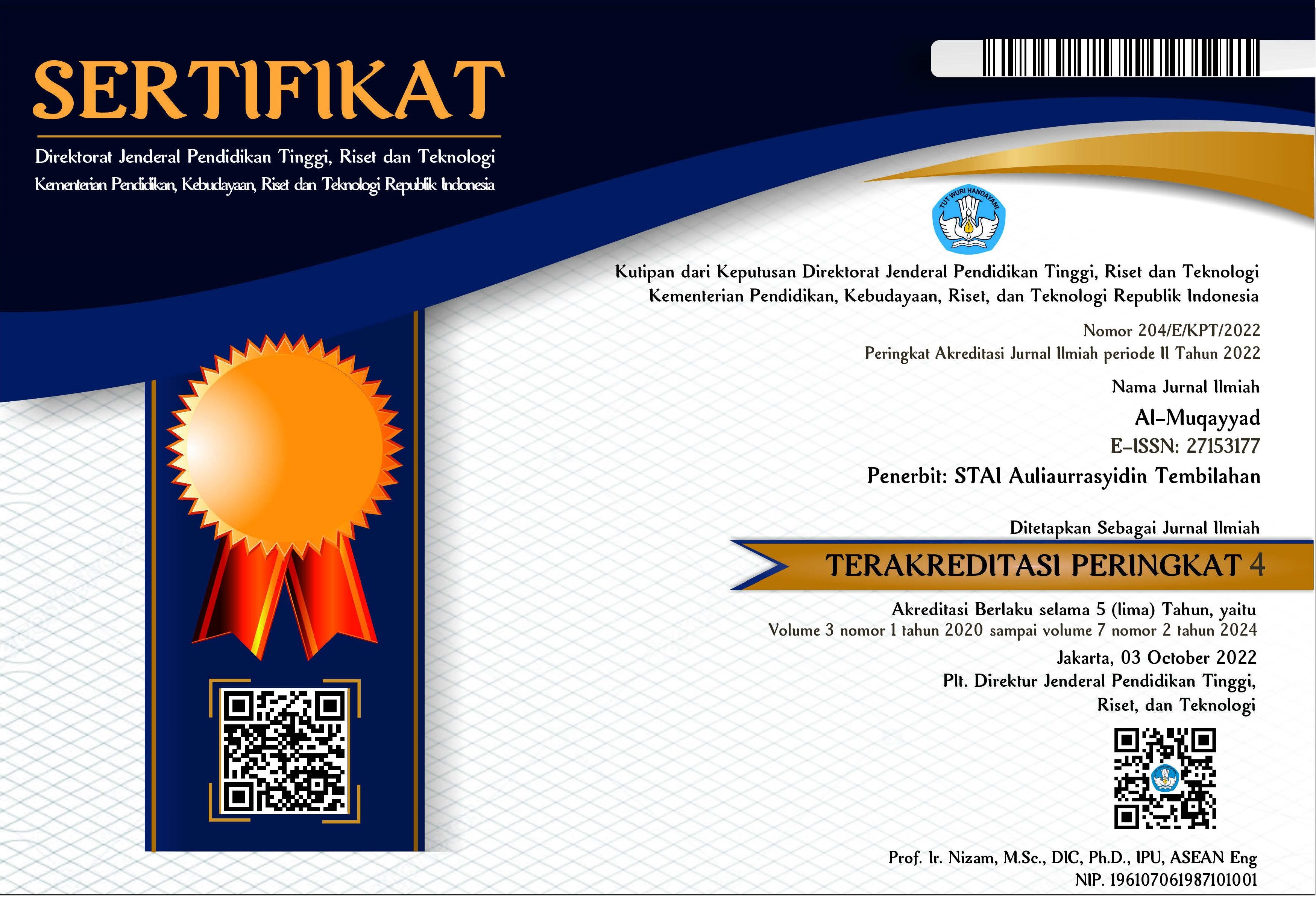Pengaruh Musaqah terhadap tingkat Kesejahteraan Petani Kelapa
DOI:
https://doi.org/10.46963/jam.v4i2.478Keywords:
Musaqah, Welfare Level, Coconut FarmersAbstract
The purpose of this study was to determine the effect, significance value and percentage of musaqah on the welfare level of coconut farmers, especially coconut farmers.This type of research is quantitative research, namely analyzing in the form of data in the form of numbers. Sampling with random sampling technique.The results of this study indicate that the t-count value is 4.229 so that the t-table is 1.972 < t-count is 4.229 with a significance of 0.000 <0.005. Thus, it can be concluded that musaqah influences the level of welfare of coconut farmers and has a significant effect. The percentage of musaqah influence on the welfare level of coconut farmers is 25.3%, while the remaining 74.7% is influenced by other variables not included in this study
Downloads
References
Abdul Rahman Ghazaly, D. (2010). Fiqih Muamalat. Jakarta: Kencana Prenada Group.
Antonio, M. S. (2001). Bank Syariah dari Teori ke Praktek. Jakarta: Gema Insani.
Bungin, B. (2010). Metodologi Penelitian Kuantitatif. Jakarta: Prenada Media Group.
Hardani, d. (2014). Metode Penelitian Kuantitatif. Bandung: Citapustaka media.
Rozalinda. (2016). Fikih Ekonomi Syariah dan Implementasinya pada Sektor Keuangan Syariah . Jakarta: PT. Raja Grafindo Persada.
Sambas Ali Muhidin, M. (2007). Analisis Korelasi, Regresi, dan Jalur Dalam Penelitian. Bandung: Pustaka Setia.
Sanusi, A. (2017). Metodologi Penelitian Bisnis. Jakarta: Salemba Empat.
Suhendi, H. (2016). Fiqih Muamalah. Jakarta: Gema Insani.
Syahrudin, S. (2014). Metodologi Penelitian Kuantitatif. Bandung: Citapustaka Media.
Downloads
Published
Issue
Section
License
Authors who publish with this journal agree to the following terms:
1. Copyright on any article is retained by the author(s).
2. The author grants the journal, right of first publication with the work simultaneously licensed under a Creative Commons Attribution shareAlike 4.0 International License that allows others to share the work with an acknowledgment of the work’s authorship and initial publication in this journal.
3. Authors are able to enter into separate, additional contractual arrangements for the non-exclusive distribution of the journal’s published version of the work (e.g., post it to an institutional repository or publish it in a book), with an acknowledgment of its initial publication in this journal.
4. Authors are permitted and encouraged to post their work online (e.g., in institutional repositories or on their website) prior to and during the submission process, as it can lead to productive exchanges, as well as earlier and greater citation of published work.
5. The article and any associated published material is distributed under the Creative Commons Attribution-ShareAlike 4.0 International License





2.png)



